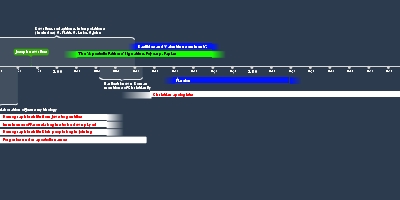Encratics (jan 1, 160 – dec 31, 249)
Description:
Irenaeus claims that Encratism originated with Tatian. Pseudo-Hippolytus later discusses the practices of the sect as well.Literature of the period:
> The Apocryphal Acts (150-200 CE) all appear to advance a radically Encratic lifestyle, specifically glorifying the concept of a sexless marriage. The Acts of Thomas (200-225 CE) in particular is extremely Encratic and anti-natalist, tying salvation itself to the dissolution of any pre-existing marriages; the most overtly Encratic passages were later edited out during the production of the Syriac versions of the text (in addition to other interpolations).
> The Testimony of Truth (150-200 CE) is an extremely Encratic/ascetic/anti-natalist gnostic work.
> Julius Cassianus (160-180 CE) claims that sexual intercourse was not sanctioned. Quotes the Gospel of the Egyptians (may have had gnostic/docetic sympathies).
> The Exegesis on the Soul (200-230 CE) may cast aspersions on physical intercourse.
Encratic believers do not seem to be separated out from other Christian adherents, but exist among them.
The conflict over food was thought to be so important by at least one author that a jailed martyr-to-be who refuses to partake of meat has to be persuaded into doing so, before he ends up leaving a bad example for those who will witness his martyrdom.
---
Added to timeline:
Date:
jan 1, 160
dec 31, 249
~ 90 years
